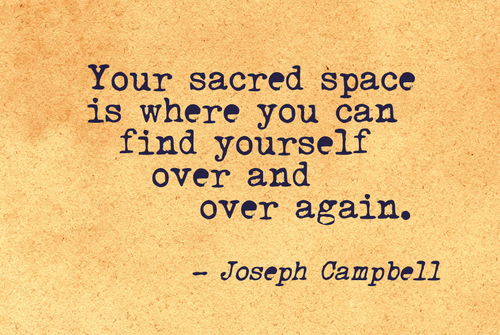 In last week’s post, I shared reflections on my recent marriage, and the choices my partner and I made in incorporating some teachings of the Buddhist Dharma not only in the ceremony but also in setting up how we are going to try to orientate our relationship now we are married. Not a promise, but more a promise to try. I explained how we had taken the six paramitas (or 6 perfections as they are also known) as six practices that we will focus on in order to create a safe container in which we as individuals and we as partners can grow (or in Buddhist parlance, “wake up”). Traditionally, the teachings on the paramitas help the bodhisattva (or we might say the “spiritual warrior”) point their activity toward not only their own waking up, but the waking up of others. The bodhisattva aims to “perfect” the qualities of generosity, discipline, patience, exertion, meditation and wisdom. But how does this relate to marriage and intimate relationships?
In last week’s post, I shared reflections on my recent marriage, and the choices my partner and I made in incorporating some teachings of the Buddhist Dharma not only in the ceremony but also in setting up how we are going to try to orientate our relationship now we are married. Not a promise, but more a promise to try. I explained how we had taken the six paramitas (or 6 perfections as they are also known) as six practices that we will focus on in order to create a safe container in which we as individuals and we as partners can grow (or in Buddhist parlance, “wake up”). Traditionally, the teachings on the paramitas help the bodhisattva (or we might say the “spiritual warrior”) point their activity toward not only their own waking up, but the waking up of others. The bodhisattva aims to “perfect” the qualities of generosity, discipline, patience, exertion, meditation and wisdom. But how does this relate to marriage and intimate relationships?
Chogyam Trungpa, a Tibetan meditation master, explains that the bodhisattva vows not to hold their own individual territory and defend it tooth and nail, but rather to become open to the world that we are living in. I like the way that Susan Piver, a teacher in the Shambhala tradition that Trungpa founded, brings this attitude to relationships and “expanding beyond our list of complaints, and taking refuge in a far more spacious view. We create the container in which love itself wants to live”. A place where love wants to live – we aim our behaviour toward that which invites love rather than demands it.
 Susan has been an important influence in the months leading up to our wedding – remote coaching through her Open Heart Project (I suggest any wannabe meditator checks out this online community) and email discussion helped my partner and I understand the paramitas in the context of relationship; bringing wisdom teachings some 2500 years old in to a 21st century marriage. So while Generosity might be traditionally seen as giving of gifts (including sharing of the teachings and fearlessness), we might also see generosity as the offering of space for the other, or listening and being there for vulnerability to be held. Patience might be seen as dropping any projections of how our partner “should be” and instead let them be the person they are, in their own time and place. Likewise, Discipline is remembering and committing to coming back to curiosity around the relationship, afresh in each moment, rather than expectation. Effort, the fourth paramita, can be thought of in relationship as the endeavour to keep turning that pointing finger back to ourselves: not in a blaming way (because we in the West often suffer from that self-critical voice) but rather just to see where we are contributing to difficulties. The mind of Meditation can be applied to intimacy too: mindfulness helps us attend to our own internal world of thought, feeling and emotion; whilst awareness helps us stay open to the dance between us and our partners – holding the “both / and” with precision and relaxation. And finally, Wisdom is what holds all of the preceding five together. Traditionally, Wisdom is remembering the Buddhist view that we are not separate, inherently existing ‘selves’ – and what better way to acknowledge this inter-being than in intimate relationship? The practice or relationship becomes a mirror that reflects back our confused parts and gives us courage that “its all workable” (as Chogyam Trungpa would say).
Susan has been an important influence in the months leading up to our wedding – remote coaching through her Open Heart Project (I suggest any wannabe meditator checks out this online community) and email discussion helped my partner and I understand the paramitas in the context of relationship; bringing wisdom teachings some 2500 years old in to a 21st century marriage. So while Generosity might be traditionally seen as giving of gifts (including sharing of the teachings and fearlessness), we might also see generosity as the offering of space for the other, or listening and being there for vulnerability to be held. Patience might be seen as dropping any projections of how our partner “should be” and instead let them be the person they are, in their own time and place. Likewise, Discipline is remembering and committing to coming back to curiosity around the relationship, afresh in each moment, rather than expectation. Effort, the fourth paramita, can be thought of in relationship as the endeavour to keep turning that pointing finger back to ourselves: not in a blaming way (because we in the West often suffer from that self-critical voice) but rather just to see where we are contributing to difficulties. The mind of Meditation can be applied to intimacy too: mindfulness helps us attend to our own internal world of thought, feeling and emotion; whilst awareness helps us stay open to the dance between us and our partners – holding the “both / and” with precision and relaxation. And finally, Wisdom is what holds all of the preceding five together. Traditionally, Wisdom is remembering the Buddhist view that we are not separate, inherently existing ‘selves’ – and what better way to acknowledge this inter-being than in intimate relationship? The practice or relationship becomes a mirror that reflects back our confused parts and gives us courage that “its all workable” (as Chogyam Trungpa would say).
So it was without hesitation that my partner and I went to London this weekend for a workshop Susan was teaching at the London Shambhala centre. Susan’s latest book is on how The Four Noble Truths play out in love: and true to this ancient teaching on how suffering is created and can be worked with, the final segment on Sunday afternoon was looking at the practicalities (or path) toward not suffering in relationship. And guess what – vows! What can we promise to our partners? Susan’s new book unpacks these, but here is a little taster…
- “I promise to not know”. We can’t know how our life together will unfold; we can’t know its twists and turns. And in fact staying open to that uncertainty stops the expectations and projections that I speak to above in the paramitas of patience and discipline.
- “I promise to be happy AND sad”. I really appreciated how Susan framed this in the context of compassion: the ability to hold both love and sorrow in our hearts – that is the way we can stay open not only when times are good, but also when times are difficult in life.
- “I promise to be irritating and irritated”. How can we NOT when living in such close proximity to another person?
- “I promise to make a home where love wants to live”. As I touch on above, how can we orientate our behaviour is that we invite love? How can we look at our daily living in a way that takes our partner in to consideration, the way they like things and offer that? Surely love then comes?
- “I promise to let go”. As sure as anything that is born, dies – this applies to relationship too. Not just relationships breaking up, but separation through death. As painful, as full of sorrow as that is and will be, the practice of not resisting, the practice of letting go to the natural order.

Regrettably, I was unable to make all of the weekend; but at least I was doing something I love -teaching on the final workshop of our Postgraduate diploma counselling courses. Suitably, the theme was “The relationship” – a workshop that brings together both Humanistic and Psychodynamic courses. In the experiential group I was facilitating I had a mix of trainees from both approaches, and after watching each other work, we discussed the similarities and differences in the therapeutic frames of the two traditions. I always love watching our trainees work – finding their way in relationship, experiencing one another in authentic contact (or noticing where there are blocks to contact). As therapists whatever our modality, we aim to offer ourselves in relationship. And I’ve been thinking a lot recently about how effective a frame the paramitas could be in psychotherapy: we can try to be generous, patient, discipline, energetic, mindful and aware, wise and compassionate. We can offer something sacred – a space of trust and intimacy in which – perhaps for the first time for our clients – love can grow.
